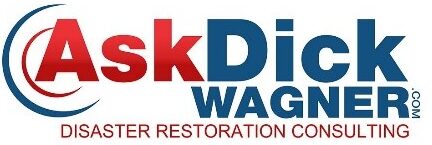Marketers Often Ask Poor or Wrong Questions!
 Anyone in marketing will tell you (if they are honest about it) that marketing is much more difficult today than it was just a few years ago. First, there are thousands more products and services, or variations of them. Second, “No” has become the standard response.
Anyone in marketing will tell you (if they are honest about it) that marketing is much more difficult today than it was just a few years ago. First, there are thousands more products and services, or variations of them. Second, “No” has become the standard response.
Just the challenge of trying to get past the gatekeeper and get in front of the all-important decision-maker is a specialty all its own!
I’ve attended so many different “sales training” courses over the years that it is easy to question what the right way is in today’s culture and economic climate. Many years ago my employer at the time paid to send me to a class teaching how to sell by reading the “body language” of the prospect. Sure, there are some obvious “signs” that the prospect is receptive or not, but that method is hardly substantial in getting more business.
Work on creating an environment or relationship where the prospect or customer thinks of you as a go-to person, or as we call it: Maven (which means trusted advisor). The old saying “people refer people they like and trust” is more true today than ever before. Making the relationship about the client reinforces the client’s trust and reliance on you. That secures referrals One of the great ways to create a strong Maven relationship is to constantly ask power questions. Asking powerful questions – questions that make your prospect think and think and think before answering, makes prospects think you are brilliant. They start to think of you as being in tune with their business, and in turn, come to rely on you and trust you more. Power questions demonstrate to your clients that you know their business and you actually care about their business.
Power questions can be formulated for any kind of industry or client. A salesperson calling on an insurance agent could ask “Mr. Allstate agent, how do you deal with the challenge of competing against esurance?” Since esurance is owned by Allstate, this serves to build credibility in several ways:
- It shows the Allstate agent that you are aware of the insurance industry
- It shows them you are familiar with Allstate
- It lends credibility to the fact that you are paying attention
- It lets them know that you “feel their pain”
- It gives you the opportunity to share other agents’ concerns and ideas
- It enables a more serious conversation and interaction
 It’s easy to chat about the weather, the kids, or some sporting event, but those don’t enhance your credibility and certainly don’t reinforce any needed trust.
It’s easy to chat about the weather, the kids, or some sporting event, but those don’t enhance your credibility and certainly don’t reinforce any needed trust.
Calling on a plumber is just as easy to create valid power questions. Asking the independent plumber how he competes against the “franchise” type plumbing companies, enables you to demonstrate again that you are keenly aware of that plumber’s business challenges.
When you establish credibility, you are removing a big reason why the client may not want to do business with you. Another added bonus is the client takes a greater interest in you because they are curious as to who you are, why you care, and what you really know that could help them.
The increased level of trust and believability makes the prospect believe you are more:
- Competent
- Have a higher level of expertise
- Valuable to them
Open-ended questions enable the prospect to respond with a much more elaborate answer which engages them more. A closed-ended question simply allows them to say yes or no, thereby awkwardly ending the dialogue.
One additional benefit to asking open-ended power questions is that you remain in control of the conversation so you can continue to demonstrate your expertise and value! Are you and your sales staff using powerful questions to enhance your differentiation and trust?
Dick Wagner, Co-Founder The CREST Network, LLC
